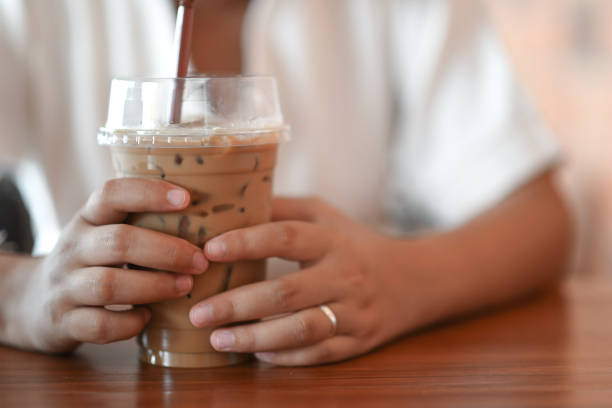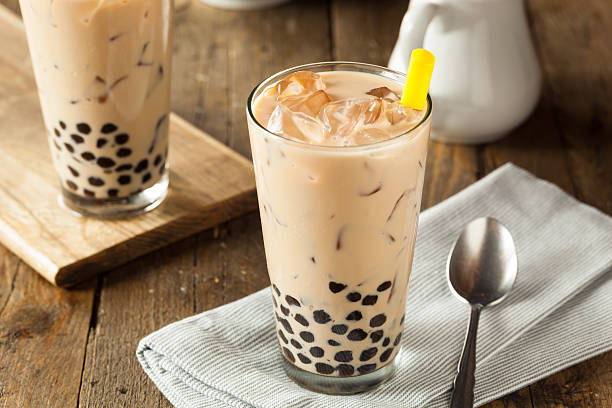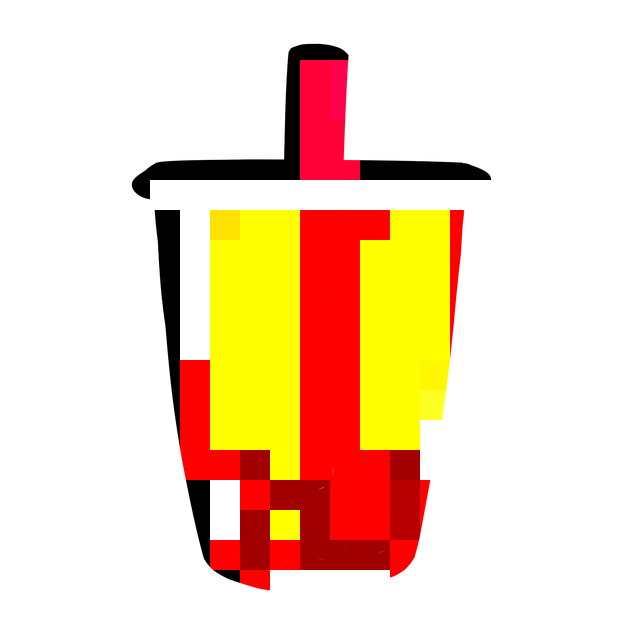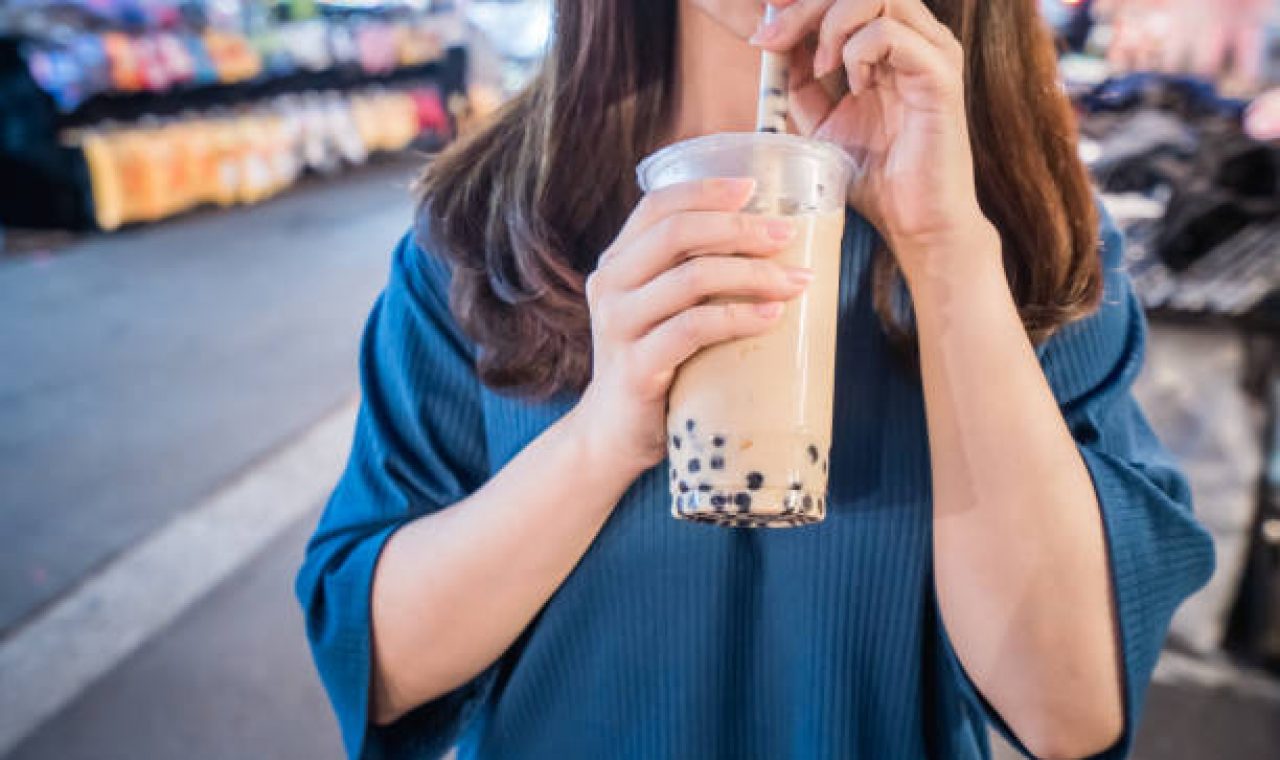If you’re like most people, you’ve probably seen bubble tea popping up all over the place and wondered what it is. But if you are the one who has tried it, you quickly become obsessed. But one question that might still be lingering in your mind is whether or not bubble tea contains caffeine. In this blog post, we will answer that question for you and also cover everything else you need to know about this trendy drink!
Does Bubble Tea Have Caffeine?

To create bubbles, Boba tea is made by shaking black tea, tapioca balls, and condensed milk. It’s then presented hot with a wide straw so you can sip and chew the bottom tapioca balls. While traditional black bubble tea is still the most popular flavour in Taiwan, many different variations are now available. Whether you like your boba tea sweet, fruity, or savoury, there’s sure to be a flavour you’ll love.
As any tea lover knows, there are many different types of tea that all offer their unique flavour profiles. It is no different, with a wide variety of tea options, including green, Thai, Pu-erh, or black tea, and oolong or Darjeeling tea. These teas include caffeine, but their amount will depend on how long the tea is steeped.
For example, if you are looking for a caffeinated option, you may choose a bubble tea made with black tea or oolong tea, as these will typically be more caffeinated than green or white teas. However, green or white teas may be a better choice if you are sensitive to caffeine or simply looking for a lower-caffeine option. Whatever type of tea you select, you can be sure it will be delicious!
The amazing properties of bubble tea make it an excellent drink for all ages. Not only does this offer you some much-needed antioxidants, but studies have shown that drinking the Asian delicacy can help boost your metabolism and reduce inflammation in adults AND kids!
Some studies have even shown that the risk of developing cancer is less in regular tea-takers. Certainly, you can enjoy bubble tea with any food in moderation. Too much sugar can lead to weight gain, and tapioca pearls can be a choking hazard for young children. But when enjoyed in moderation, bubble tea can be a delicious and healthy treat.
What Is the Quantity of Caffeine in Bubble Tea?
You might be surprised to learn that your favourite bubble tea could give you a severe caffeine jolt. According to a recent study by the Hong Kong state, a cup of bubble tea may have caffeine content ranging between 100 to 160mg.
That’s more than double the caffeine amount present in coffee! The research compared caffeine amounts in caffeinated drinks and beverages, including café-style tea, coffee, and bubble tea. According to the research, there is 380 mg of caffeine in a regular coffee cup, around 54 mg in the cafe latte cup, and 73- 220 mg in our milk tea. So if you want something to open your eyes at midnight, then bubble tea is a good option, but always consider moderation.
Have you ever wondered why bubble tea shops add caffeine to their drinks? There are a few reasons for this. First, caffeinated drinks tend to have a stronger flavour than non-caffeinated drinks. This is because caffeine can mask the bitter taste of other ingredients in a drink, like tannins or acids found in certain teas.
This means that people will enjoy their drinks more because they will not notice as much bitterness from other ingredients. Second, adding caffeine to a drink can help to give it a boost of energy. This is especially useful for people who need an afternoon pick-me-up or want to stay awake during late-night study sessions.
Third, caffeine is a stimulant that helps to stimulate urination. This can help to flush out toxins from the body and can also help to reduce bloating and water retention. Bubble tea shops usually add caffeine to their drinks as powder or syrup, which can easily dissolve into the tea. So next time you’re enjoying a cup of bubble tea, remember there’s more to it than bubbles and tea!

Reasons for bubble tea shops to put caffeine in drinks
Have you ever wondered why bubble tea shops incorporate caffeine into their delightful concoctions? As it turns out, there are a few intriguing reasons for this unique fusion.
Firstly, caffeinated drinks possess an interesting superpower
They boast a stronger and more captivating flavor profile compared to their non-caffeinated counterparts. This phenomenon arises from caffeine’s ability to mask the bitter notes of other ingredients in a beverage, including tannins or acids found in certain teas. Consequently, the addition of caffeine renders a harmonious symphony of flavors, ensuring that your taste buds embark on an exhilarating journey. This ingenious technique leads to a more enjoyable experience as the potential bitterness of other elements takes a backseat.
Secondly, the infusion of caffeine into a beverage serves as a natural energy booster
This makes it an ideal choice for individuals seeking a midday revitalization or those engaged in late-night study marathons. The caffeine’s invigorating properties provide a welcome burst of energy, helping people stay alert and focused when they need it the most. As the demands of modern life continue to challenge our energy levels, bubble tea emerges as not only a delightful treat but also a functional ally.
Moreover, the stimulating effects of caffeine extend beyond sensory pleasures
This third facet brings an unexpected health benefit into the mix—caffeine’s diuretic nature. Caffeine has a remarkable ability to stimulate urination, facilitating the expulsion of toxins from the body. This process not only aids in detoxification but also contributes to reducing bloating and water retention, promoting a sense of lightness and well-being. In bubble tea, caffeine is typically introduced in the form of powder or syrup, effortlessly dissolving into the tea to seamlessly integrate its advantages.
How much bubble tea should you drink?
When considering your bubble tea consumption, it’s important to strike a balance that takes into account its caffeine content. Given that a cup of bubble tea can contain anywhere from 100 to 160 mg of caffeine, which rivals the caffeine content of coffee, moderation becomes a key principle. If you’re particularly sensitive to caffeine or already consume other caffeinated beverages, it’s wise to limit your bubble tea intake. For those seeking an occasional treat, indulging in a cup every now and then is a delightful way to savor its unique flavors and experience a gentle energy boost. However, if you find yourself frequently reaching for bubble tea, especially in the latter part of the day, consider opting for decaffeinated varieties or reducing your portion size to minimize the impact of excess caffeine. Remember, balance is the key to enjoying the pleasures of bubble tea while ensuring it harmonizes with your overall well-being.

